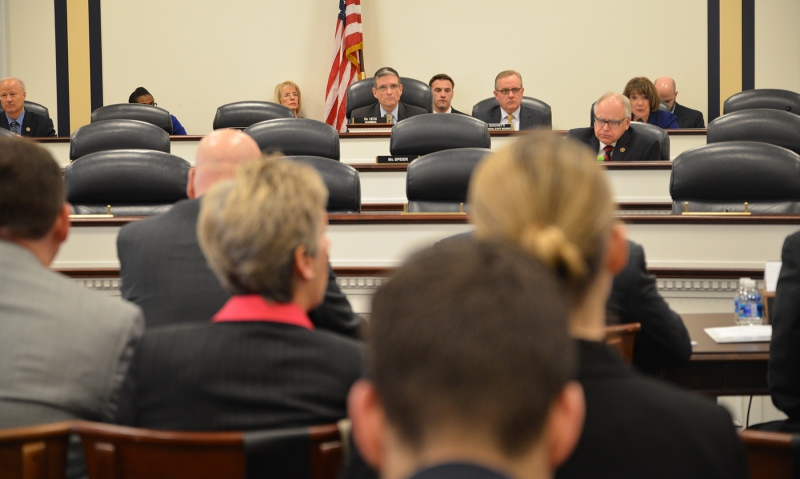
Subcommittee warned about removing recruitment, re-enlistment incentives.
The House Committee on Armed Services Subcommittee on Military Personnel heard concerns from The American Legion at a hearing March 25 to review the Military Compensation and Modernization Commission’s most recent recommendations to change the way our nation pays and provides retirement benefits to those who served in the U.S. Armed Forces.
John Stovall, director of The American Legion’s National Security and Foreign Relations Division, presented oral testimony on behalf of the Legion.
“The American Legion was chiefly mindful of three guiding concerns,” Stovall told the subcommittee. “First, to preserve and protect the integrity and strength of the all-volunteer force, to recognize that many of these recommendations are interconnected by their very nature and considering reform means to consider the impact they will have not solely on the force but on the other recommendations, and recognition that some proposals will have profound impacts on the Department of Defense and other agencies of the government, especially the VA.”
After more than a decade of fighting America’s wars, members of the armed forces now face massive troop drawdowns to force strength figures not seen since prior to World War II. They face drastic sequestration cuts that disproportionately force the military to shoulder the burden of reducing the national budget deficit.
The American Legion believes strongly in protecting the integrity of the all-volunteer force, Stovall explained. As such, he added, The American Legion is committed to opposing any changes to the military system which would reduce the incentive to enlist or re-enlist. “The American Legion urges Congress to maintain continuous oversight of DoD personnel policies to ensure satisfactory retention, recruitment, morale, health and effectiveness of the armed forces,” he said.
The Legion is committed to ensuring that any benefit in force at the time of initial enlistment is a “sacred promise that must remain in force throughout the entire military career and retirement of a servicemember,” Stovall testified.
“Several of the proposals have direct impacts on other agencies of the government, most specifically the VA,” Stovall said.
The American Legion has long called for better collaboration between DoD and VA. There are concerns, however, about the impact of proposed changes to education.
American Legion written testimony also indicated that recommendations indicate that education programs such as the Montgomery GI Bill are redundant, yet provide no recognition that the Montgomery GI Bill has provisions that make it more effective than other programs for veterans seeking on-the-job training or apprenticeship programs to complete their transition process from military to civilian workforce.
Because of the interconnected nature of the military and veteran side of the equation in the field of education benefits, The American Legion urged the committee to reach out and conduct joint hearings with their counterparts on Veterans Affairs committee, to explore the impact of these proposed changes both to active-duty service members as well as veterans.
Because decisions about education benefits are likely to have ramifications on both sides of the active duty-veteran divide, The American Legion encourages robust discussion on the topic between all stakeholders.
Stovall concluded his statement reinforcing The American Legion’s eagerness to be an active participant in forthcoming conversations regarding the recommendations.
- Legislative

